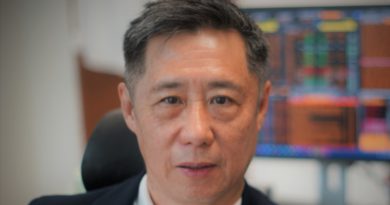Qi Wang: “HK’s importance to China has definitely increased in recent years”
Qi Wang is the CEO, CIO and Co-Founder of MegaTrust Investment (HK), a boutique China fund manager based in Shanghai and Hong Kong. He is also the creator of Daily Reflection on China, a financial newsletter offering local news and curated insights on Chinese stocks. His previous roles include Head of China Equity Research at MSCI, CIO of China Everbright and Investment Director at Elliott Advisors. After graduating from Dartmouth College in the US, he started his career with a decade working at investment banks Goldman Sachs and UBS in New York and Hong Kong. The Hedge Funds Club’s Stefan Nilsson caught up with Qi about Hong Kong and Chinese investment opportunities.
What are your thoughts on the gradual reopening of Hong Kong? Will HK bounce back to its old self or will it emerge as something new?
We like the Hong Kong and Macau reopening story! It is simpler and more straightforward than China reopening. In fact, we just launched a Hong Kong Reopening Index, containing 39 stocks that potentially benefit from the reopening of Hong Kong and Macau, including gaming, retail, transportation, real estate, financial services, etc. Longer term we also see rising strategic importance of Hong Kong as China’s “Special Administrative Region”, a much-needed buffer zone amid the conflict with the West. While it’s debatable whether Hong Kong has lost its glory as a global financial centre, Hong Kong’s importance to China has definitely increased in recent years. We can expect more influx of money, business and talent from mainland China to Hong Kong going forward. Hong Kong’s unique position as China’s window to the world has never been stronger. Following the extended lockdowns in China last year, it is increasingly unlikely for cities like Shanghai or Shenzhen to replace Hong Kong in that role.
What do you see as the most interesting sectors to look at in Greater China from an investment point of view?
Healthcare, given the severe correction previously and the improving fundamentals now. This is a broad sector including pharmaceuticals, healthcare services, medical research and medical equipment. Similar to other sectors, Chinese healthcare also experienced major regulatory risk in recent years. However, the education sector is destroyed, the real estate business model is forever changed, and Big Tech’s growth potential is capped. Healthcare is perhaps the only sector whereby the long-term investment thesis is intact. For example, China’s healthcare spending as a per cent of the GDP is still among the lowest in the world. The covid outbreak and its overwhelming impact on the healthcare system also increase the urgency for more medical infrastructures. China is already building more hospitals and clinics as part of its new infrastructure spending.
You recently published a summary of a number of Wall Street firms’ outlooks for China. What are the major issues with such reports on China from Wall Street?
I think one issue is about having analysts on the ground and doing thorough research. You can’t do good China research from New York or London. Not getting the information first-hand will handicap you. We are fortunate because the majority of our investment team is based in China, with the rest in Hong Kong. Another problem is that Wall Street analysts often take things for granted. You need to stop being arrogant and stop having preconceptions but keep an open mind instead. I also see many analysts trying to extrapolate their India, Brazil and other emerging market experience on China. Been there, done that? No, China is completely different. Also, the Western media reporting on China tends to be warped these days, and that shouldn’t be your only source of information.
What are the biggest challenges for international investors who want to get exposure to China in their portfolios?
Not having their own investment team on the ground can be a challenge. Not being able to find a reliable and consistent local Chinese manager to do the work can be another. The Chinese stock market offers lots of alpha, partly because the market is pretty inefficient. In any given year, there are lots of Chinese managers beating the index. That’s common in China. However, their performance tends to be unstable. The top-ranking managers in one year often end up in the bottom ranks the following year. The key is not to have great numbers in one month, one quarter or one year. The key is how to generate returns and beat the market consistently, year after year. Empirically, only a few Chinese managers have generated more than 10% return p.a. in the last 10 years The 10-10 rule.
Your boutique fund management firm, MegaTrust Investment, has a dual set-up with offices in both Hong Kong and Shanghai. What’s the thinking behind this?
Good question. Our main office is in Shanghai and was founded in 2007. We established the Hong Kong office in 2015 as a “window to the world”, to build two-way flows of information and capital. Most of our work in Hong Kong has been managing foreign money investing in China A-shares, through Stock Connect Northbound. We are now also looking into outbound flows, i.e. helping Chinese investors manage their offshore money. Both cases are supported by China’s financial market opening and it’s only the beginning. For example, the foreign ownership of A-shares is only 3%-4%, and the global asset allocations of Chinese investors are negligible. Regardless, our core competency is always in Chinese stocks and the majority of our AUM is still in China today.
Subscribe to Qi Wang’s Daily Reflection on China.









